Books: english
Books: english
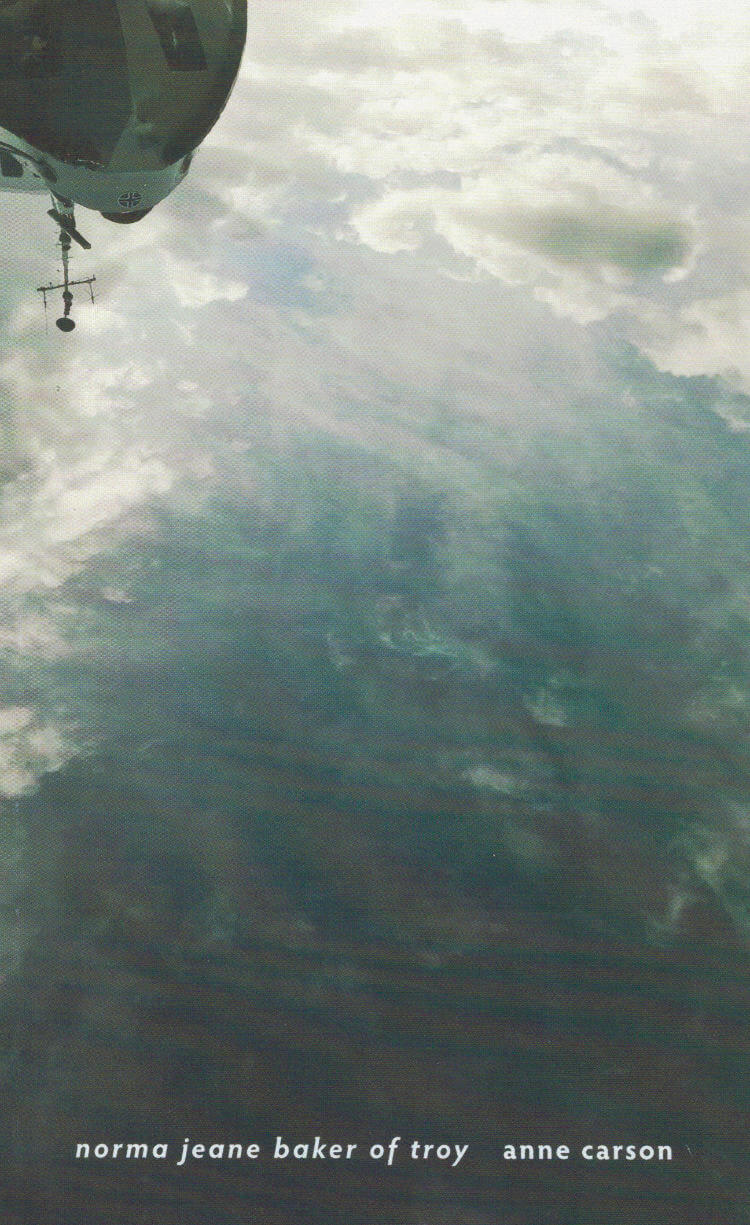
Norma Jeane Baker of Troy

Trouble on Triton
In a story as exciting as any science fiction adventure written, Samuel R. Delany's 1976 SF novel, originally published as Triton, takes us on a tour of a utopian society at war with our own Earth. High wit in this future comedy of manners allows Delany to question gender roles and sexual expectations at a level that, 20 years after it was written, still make it a coruscating portrait of "the happily reasonable man", Bron Helstrom - an immigrant to the embattled world of Triton, whose troubles become more and more complex, till there is nothing left for him to do but become a woman.
Against a background of high adventure, this minuet of a novel dances from the farthest limits of the solar system to Earth's own Outer Mongolia. Alternately funny and moving, it is a wide-ranging tale in which character after character turns out not to be what he - or she - seems.

The Struggle Is Not Over Yet
A conference, hosted by the International Center for the Arts José de Guimarães, borrowed its title from an unfinished film stored in an archive in Bissau. Luta ca caba inda (The struggle is not over yet) was conceived as a documentary film on post-independence Guinea-Bissau, but was abandoned in the editing process in 1980.
The archive testifies to a decade of collective and internationally connected cinema praxis in the country, as part of the people’s struggle for independence from Portuguese colonialism. Fifteen contributors brought their expertise to the task of re-visiting a period of revolutions whose reverberations can still be felt today. A rare coming together of artistic, juridical, cinematographic, curatorial and academic practices, the conference was not only a timely and important occasion to address issues of the post-colony in Portugal, but it also yielded new and experimental ways of convening around an archive, convoking conflicts and probing its topicality in the present.
It took place in a room in which, echoing Édouard Glissant’s notion of the ‘Creole garden’, plants, archival objects, technical props, furniture and people were arranged on equal terms.

Republications
Virginie Bobin, Mathilde Villeneuve
Republications is the first volume of Archive Journal’s hors-séries. Each issue of the series is commissioned to authors whose research is close to the editorial line of the journal. For the inaugural issue Archive’s editors have invited French curators and art critics Virginie Bobin and Mathilde Villeneuve. Taking as a starting point the notion of ‘republication’, the contents of this publication have been compiled through a collective process over the course of multiple editorial meetings in Berlin, Aubervilliers and Paris between 2011 and 2012. The texts assembled in this volume have been written in English or in French.
Contributions by Mathieu Kleyebe Abonnenc, Lene Berg, Pauline Boudry, Renate Lorenz, Christophe Bruno, Foundland, Jeff Guess, Alexis Guillier, Rémy Héritier, Franck Leibovici, Sohrab Mohebbi, Julien Prévieux, Sally Price, Anna Théodoridès, Vassilis Salpistis, Marie Voignier.

Midpoint Cafe
This book portrays a slice of the history of Midpoint Café and Bar in Brussels from 2011 until today, through interviews with one of its owners and a few of the regulars.
Midpoint is a book of interviews with Fatma Arar, Nick Bastis, Carles Congost, Gro Gravås, Jean-Paul Jacquet, Lars Laumann, Stefanie Snoeck, Harald Thys and Margot Vanheusden.
Edited by Laure Charles, Alberto García del Castillo, Louise Osieka and Marnie Slater.

Klassen Sprachen/ Written Praxis
In dictionary entries, after its first appearance the discussed word is represented by its initial: class, class struggle, class contradiction as well as crisis, catastrophe, or colonialism become C. Our C (K in German) stands for Class Languages, and thus for the question of the verbalization, translation, and inscription of those political and social conflicts that determine our contemporary moment. Instead of passing off art as a model for a better politics, we wish to test it for the signatures, the markers and forms of these deeply antagonistic relations of which art itself is a material part: we are concerned with art as a class language, as well as with class languages in art; with art’s room for maneuver as well as with its limits and restrictions, curatorially, in writing and debate.

Civilisation & its Malcontents
Caught up in the vortex of this bellicose age, adrift on the sea of digital information and misinformation, without perspective enough to glimpse the future that is actually forming, I am finding it hard to think. Here is a book about thought right now and about how to think in a world that asks us at every level not to. Discontent? Malcontent? Sarah Wood looks at the world through Freud and fraud.
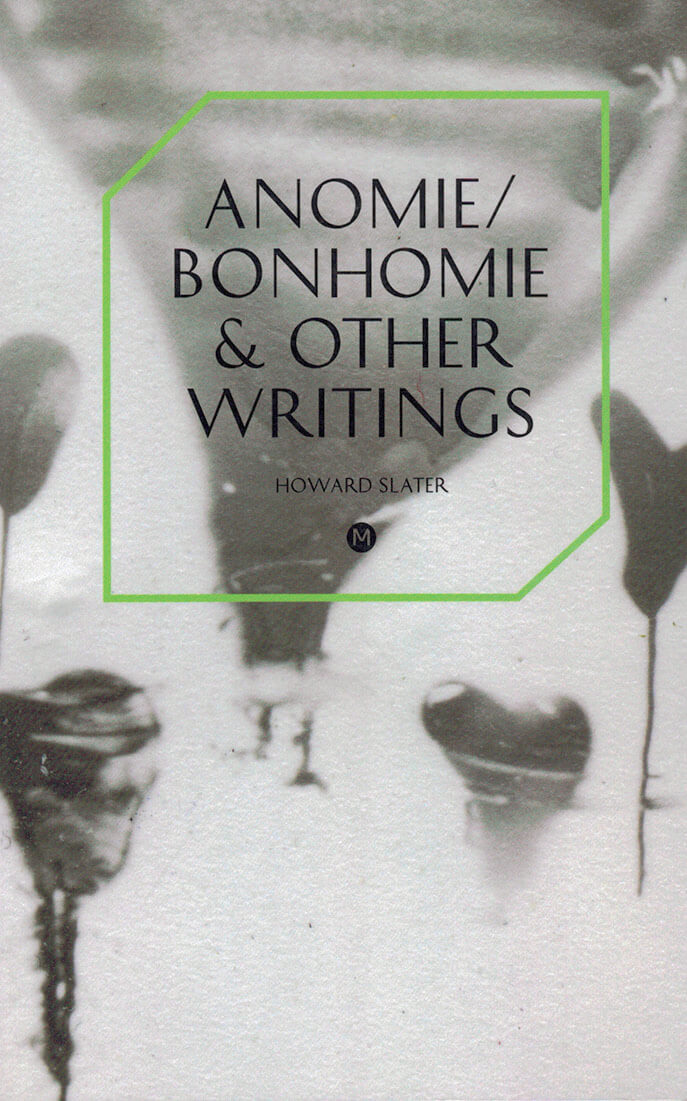
Anomie/ Bonhomie & other writings
In this collection of writings, Howard Slater improvises around what Walter Benjamin could have meant by the phrase 'affective classes'. This 'messianic shard' and its possible implications leads Slater to develop a therapeutic micro-politics by way of a mourning for the Workers' Movement and a grappling with the 'becomings of capital'.
The essay 'Anomie/Bonhomie' is the keystone of this book which also features tributary texts and poems drawn from the past ten years. These supplementary texts approach such themes as exodus, species-being, surrealist precedents, poetic language and the possibilities for collective 'affective' practices to combat capitalism's colonisation of the psyche.

Radical Muses (Sinister Wisdom nr. 113)
Sinister Wisdom 113: Radical Muses features an eclectic array of contemporary poetry, prose, and art by lesbians from around the world, including new work by: Andrea Assaf, Tara Shea Burke, Cheryl Clarke, Marina Chirkova, Estela González, Barbara Haas, Nancy E. Lake, Vi Khi Nao, H. Ní Aódagaín and much more!

Time has fallen asleep in the afternoon sunshine
Rêveries du promeneur solitaire
For the project Time has fallen asleep in the afternoon sunshine a group of people/ performers memorize a book of their choice. Together they form a library collection consisting of living books. After years of learning by heart and reciting for readers, some of the books have now been written down from memory to create new editions, versions resulting from this process. This book is one of those books, chosen by one person, learned by heart and recited many times, and now written down again from memory. This edition is not a re-edition of the original text. It is a re-writing of the text after the process of reading, memorizing and reciting, with all the alterations that might have occured in the course of this process.

Time has fallen asleep in the afternoon sunshine
Een dag in 't jaar door Herman Gorter
For the project Time has fallen asleep in the afternoon sunshine a group of people/ performers memorize a book of their choice. Together they form a library collection consisting of living books. After years of learning by heart and reciting for readers, some of the books have now been written down from memory to create new editions, versions resulting from this process. This book is one of those books, chosen by one person, learned by heart and recited many times, and now written down again from memory. This edition is not a re-edition of the original text. It is a re-writing of the text after the process of reading, memorizing and reciting, with all the alterations that might have occured in the course of this process.

Time has fallen asleep in the afternoon sunshine
Verzamelde gedichten - Against the Forgetting
For the project Time has fallen asleep in the afternoon sunshine a group of people/ performers memorize a book of their choice. Together they form a library collection consisting of living books. After years of learning by heart and reciting for readers, some of the books have now been written down from memory to create new editions, versions resulting from this process. This book is one of those books, chosen by one person, learned by heart and recited many times, and now written down again from memory. This edition is not a re-edition of the original text. It is a re-writing of the text after the process of reading, memorizing and reciting, with all the alterations that might have occured in the course of this process.
www.timehasfallenasleepintheafternoonsunshine.be

Time has fallen asleep in the afternoon sunshine
Seltsame Sterne starren zur Erde
For the project Time has fallen asleep in the afternoon sunshine a group of people/ performers memorize a book of their choice. Together they form a library collection consisting of living books. After years of learning by heart and reciting for readers, some of the books have now been written down from memory to create new editions, versions resulting from this process. This book is one of those books, chosen by one person, learned by heart and recited many times, and now written down again from memory. This edition is not a re-edition of the original text. It is a re-writing of the text after the process of reading, memorizing and reciting, with all the alterations that might have occured in the course of this process.
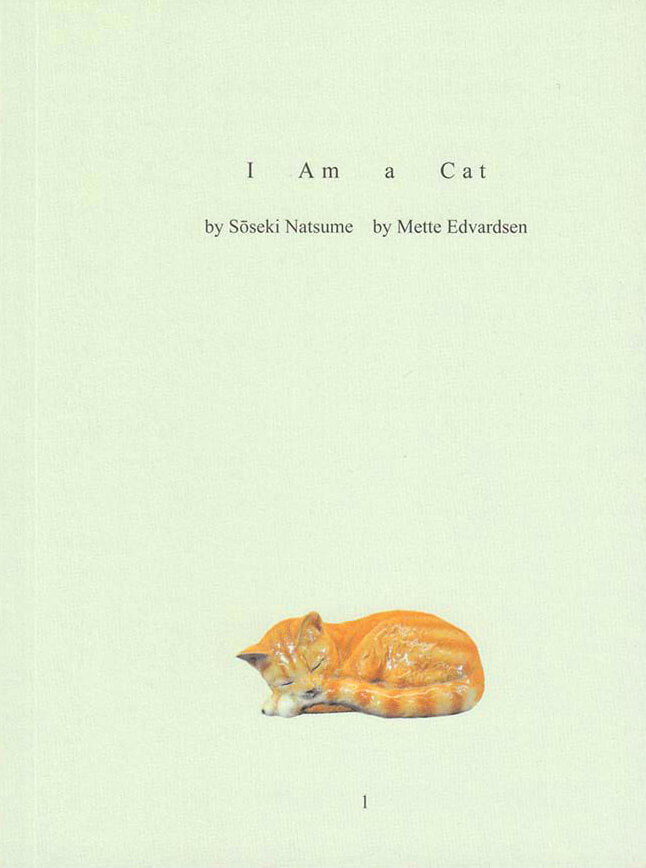
Time has fallen asleep in the afternoon sunshine
I am a Cat by Sōseki Natsume
For the project Time has fallen asleep in the afternoon sunshine a group of people/ performers memorize a book of their choice. Together they form a library collection consisting of living books. After years of learning by heart and reciting for readers, some of the books have now been written down from memory to create new editions, versions resulting from this process. This book is one of those books, chosen by one person, learned by heart and recited many times, and now written down again from memory. This edition is not a re-edition of the original text. It is a re-writing of the text after the process of reading, memorizing and reciting, with all the alterations that might have occured in the course of this process.

Time has fallen asleep in the afternoon sunshine
I am Four Quartets by T.S Elliot
For the project Time has fallen asleep in the afternoon sunshine a group of people/ performers memorize a book of their choice. Together they form a library collection consisting of living books. After years of learning by heart and reciting for readers, some of the books have now been written down from memory to create new editions, versions resulting from this process. This book is one of those books, chosen by one person, learned by heart and recited many times, and now written down again from memory. This edition is not a re-edition of the original text. It is a re-writing of the text after the process of reading, memorizing and reciting, with all the alterations that might have occured in the course of this process.
www.timehasfallenasleepintheafternoonsunshine.be
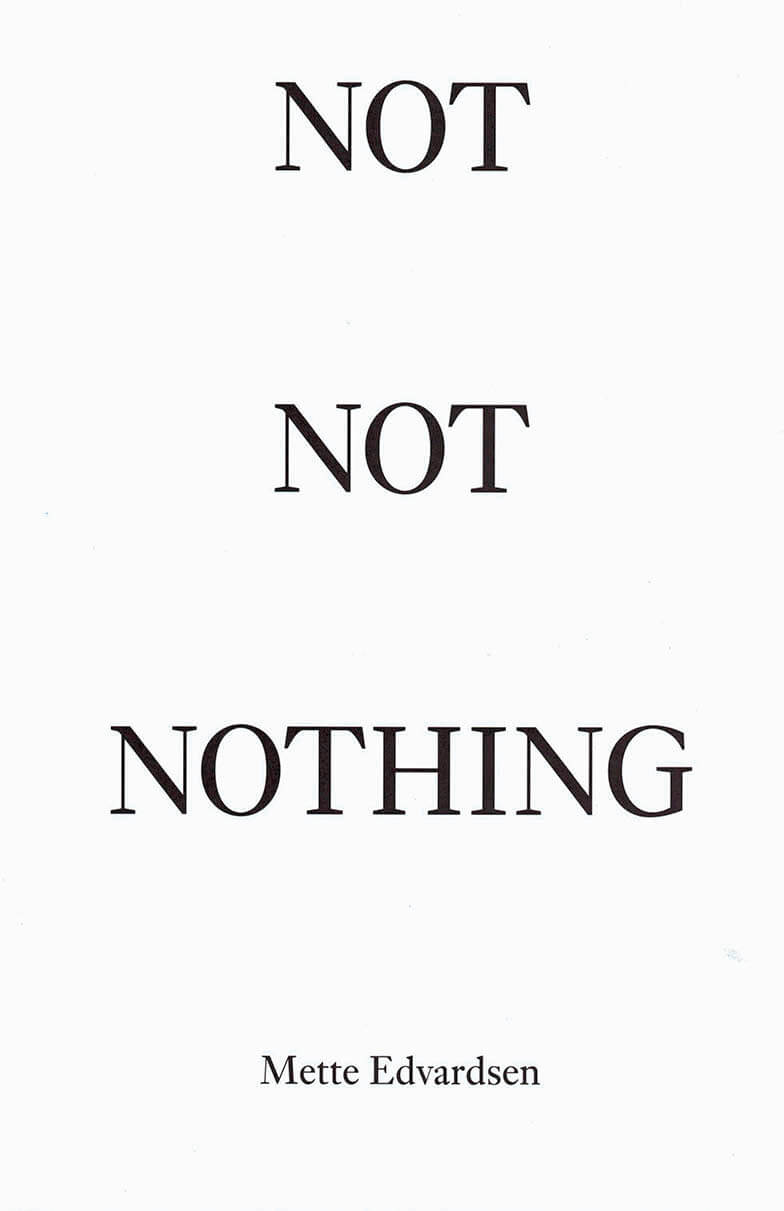
Not Not Nothing
This publication brings together the texts from the pieces Black (2011), No Title (2014), We to be (2015) and oslo (2017) created and performed by Mette Edvardsen. These pieces have been developed using language as material, looking into the relationship between writing and speaking, between language and voice. Mette Edvardsen is working on the verge of the visible, considering choreography as writing.

Touching Feeling
A pioneer in queer theory and literary studies, Eve Kosofsky Sedgwick brings together for the first time in Touching Feeling her most powerful explorations of emotion and expression. In essays that show how her groundbreaking work in queer theory has developed into a deep interest in affect, Sedgwick offers what she calls "tools and techniques for nondualistic thought," in the process touching and transforming such theoretical discourses as psychoanalysis, speech-act theory, Western Buddhism, and the Foucauldian "hermeneutics of suspicion."
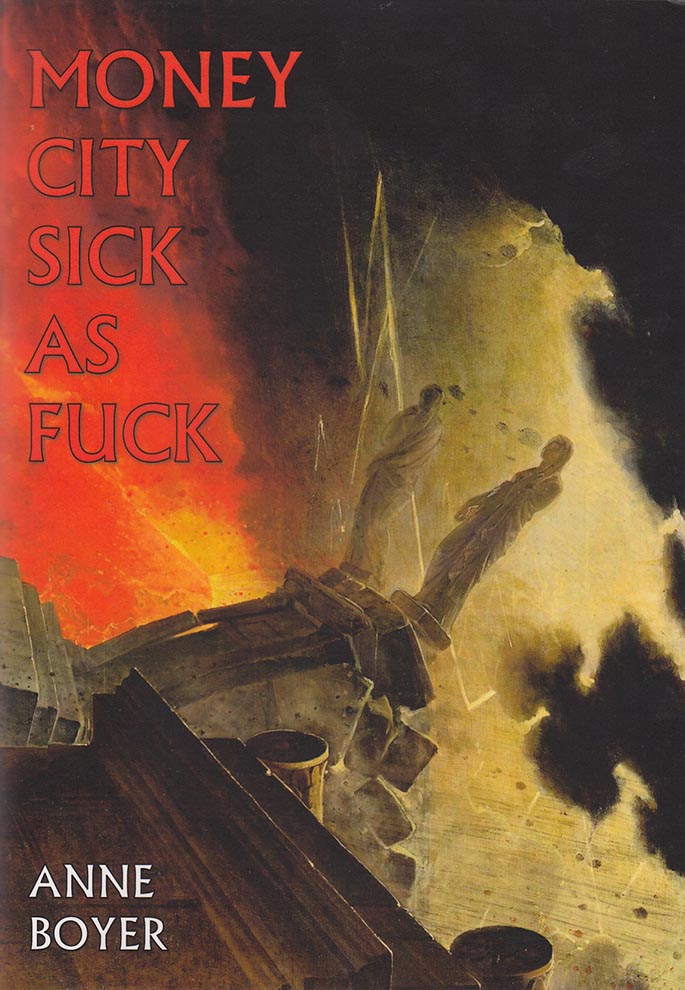
Money City Sick as Fuck
Selected from a sequence of 100 poems written on a long day in the summer of 2013, Anne Boyer's Money City Sick as Fuck imagines writing a poem "in a confederacy of exception [...] called 'wages for tenderness and nothing else'". Situated between Pompeii and Olympus, at "Texaco in ruins" or the amusement park, in a bar called Lethe, at the saddest prom in history, taking "every odd route", these poems passionately survey and survive the streets and jails of the modern-day polis,"sunbathing in Atlantis", oracles IRL.
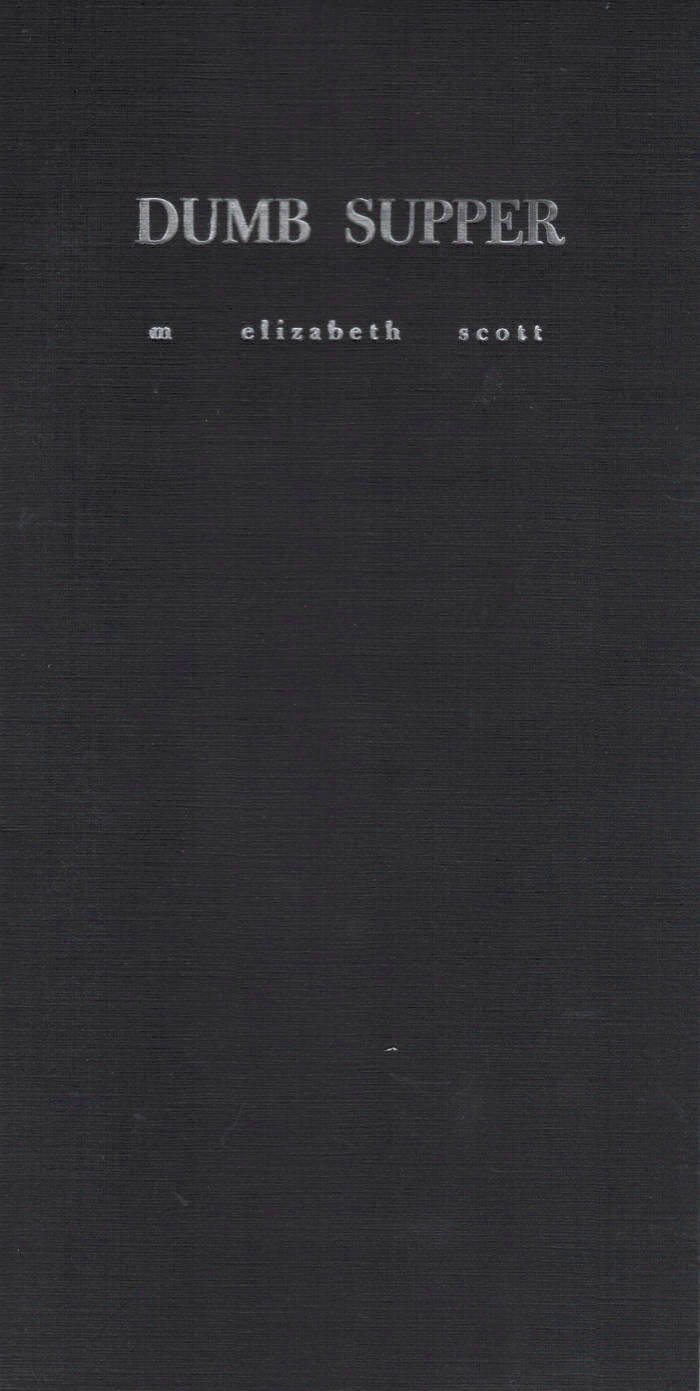
Dumb Supper
40 pages, b&w, saddle-stitch binding.
Printed on alternating paper & vellum.
Features graphics by Nat Marcus and 14 poems on loss by M. Elizabeth Scott.

The Xenotext Book
Book I of The Xenotext constitutes a kind of "demonic grimoire," providing a scientific framework for the project with a series of poems, texts, and illustrations. A Virgilian welcome to the Inferno, Book I is the "orphic" volume in a diptych, addressing the pastoral heritage of poets, who have sought to supplant nature in both beauty and terror. The book sets the conceptual groundwork for the second volume, which will document the experiment itself. The Xenotext is experimental poetry in the truest sense of the term.

A Handbook of Disappointed Fate
A HANDBOOK OF DISAPPOINTED FATE highlights a decade of Anne Boyer's interrogative writing on poetry, death, love, lambs, and other impossible questions.
"The essays in this book model the poet’s no: they refuse to make things easy when they aren’t, preserving the messy difficulty of cancer, of poverty, of staying alive under capitalism." - Julia Bosson

Still Life 4
STILL LIFE is an online and printed zine about relationships and configurations in which one person is still while others are not. Or where one person is passive and others are active. It’s about how we put ourselves in other people’s hands. Or how we are put in other people’s hands. It’s about care and power and vulnerability and agency. And other things not so clearly named. It’s about the different kinds of knowledge that people have about their own and other people’s bodies. And the kind of philosophical and political understandings woven into that knowledge.

Persona
PERSONA is the second magazine in a series in response to a series of meetings of female artists entitled "A conversation to know if there is a conversation to be had" held in New York, Amsterdam, Berlin and London in 2010-11. The first journal LABOUR, addressed the question of women's work, and used the lens of the feminist critique of unpaid labour to look at the contemporary condition of the artist. PERSONA as a jumping off point looks at the condition of self-presentation for the contemporary artist, but in an expansive manner encompasses discussions on embarrassment, refusal, interiority and identification.
Contributors: Rita McBride, Celine Condorelli, Avery Gordon, Isla Leaver-Yap, Eva Kenny, Melissa Gordon, Marina Vishmidt, Josephine Pryde, Sabeth Buchmann, Chris Kraus, Audrey Reynolds, Elisabeth Subrin, Alison Carr, Karolin Meunier, Sue Tate, Nadia Hebson, Jen Liu, Da
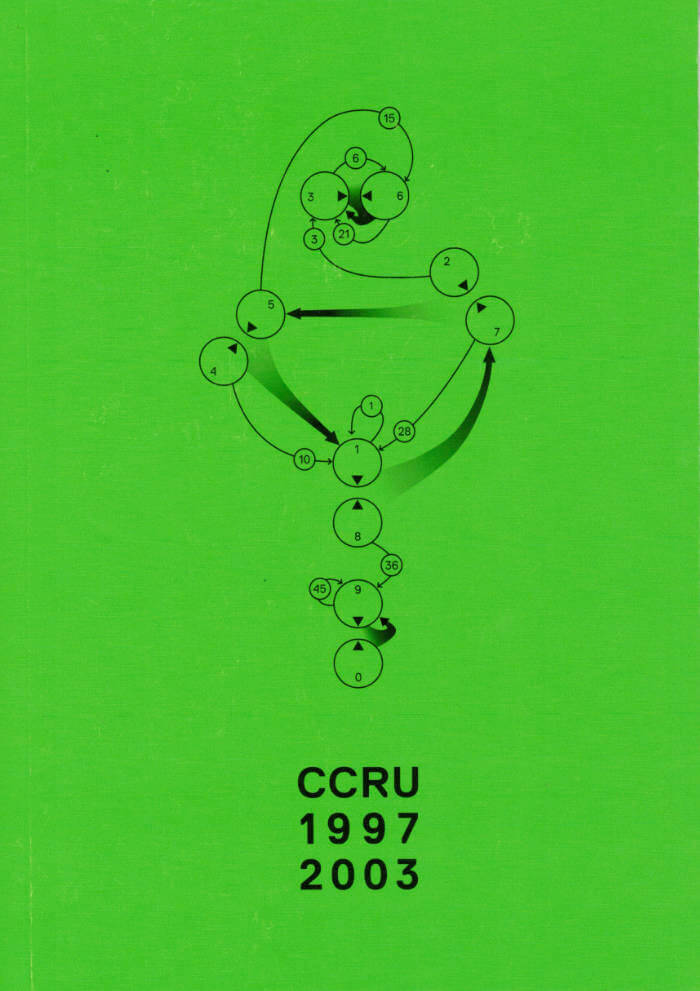
CCRU writings 1997-2003
From before the beginning (which was also, according to them, already the end), the adepts of the Architectonic Order of the Eschaton have worked tirelessly to secure the past, present, and future against the incursions of Neolemurian time-sorcery, eliminating all polytemporal activity, stitching up the future, sealing every breach and covering every track. According to the AOE, the Ccru ‘does not, has not, and will never exist’. And yet….
The texts collected here document the Ccru’s perilous efforts to catalogue the traces of Lemurian occulture, bringing together the scattered accounts of those who had stumbled upon lagooned relics of nonhuman intelligence—a project that led ultimately to the recovery of the Numogram and the reconstruction of the principles of Lemurian time-sorcery—before disintegrating into collective schizophrenia and two decades of absolute obscurity.
Meshing together fiction, number theory, voodoo, philosophy, anthropology, palate tectonics, information science, semiotics, geotraumatics, occultism, and other nameless knowledges, in these pages the incomplete evidence gathered by explorers including Burroughs, Blavatsky, Lovecraft, Jung, Barker, J.G. Ballard, William Gibson, and Octavia Butler, but also the testimony of more obscure luminaries such as Echidna Stillwell, Oskar Sarkon, and Madame Centauri, are clarified and subjected to systematic investigation, comparison, and assessment so as to gauge the real stakes of the Time-War still raging behind the collapsing façade of reality.
One of the most compelling and unnerving collective research enterprises to have surfaced in the twentieth century, the real pertinence of the Ccru’s work is only now beginning to reveal itself to an unbelieving world. To plunge into the tangled mesh of these conspiracies, weird tales, numerical plagues, and suggestive coincidences is to test your sense of reality beyond the limits of reasonable tolerance—to enter the sphere of unbelief, where demonic currents prowl, where fictions make themselves real. Hyperstition.
Cybernetic Culture Research Unit was a name on a door in the Philosophy Department of Warwick University, UK, during the late 1990s. It was a rogue unit, blurring the borders between traditional scholarship, cyberpunk sci-fi, and music journalism. Its frenzied interdisciplinary activity, including the Virtual Futures and Virotechnology conferences and the journal Abstract Culture, disturbed Warwick's Philosophy Department, resulting in the termination of the unit.